Overview
NeumDetect is a cutting-edge medical imaging application that leverages deep learning and computer vision technologies to detect pneumonia from chest X-ray images. This project demonstrates the practical application of AI in healthcare, focusing on early and accurate diagnosis to improve patient outcomes.
🛠️ Technical Stack
-
AI & Machine Learning
- TensorFlow/Keras for deep learning implementation
- Convolutional Neural Networks (CNN) for image processing
- Transfer Learning with pre-trained models
- Data augmentation techniques for improved accuracy
-
Architecture & Model Design
- Deep Learning architecture with CNN layers
- Ensemble modeling for enhanced prediction accuracy
- Custom model architecture for medical imaging
- Integration with ChatGPT API for result interpretation
-
Data Processing & Analysis
- Advanced image preprocessing pipelines
- Robust data augmentation strategies
- Kaggle medical imaging datasets
- Custom validation and testing frameworks
⭐ Key Features
- Real-time pneumonia detection from X-ray images
- High accuracy in medical diagnosis
- Interpretable AI results with explanation
- User-friendly medical interface
- Rapid processing and analysis
- Comprehensive diagnostic reports
- Support for various X-ray image formats
- Integration with medical workflows
🏗️ Architecture Overview
The project implements a sophisticated deep learning architecture:
- Input Layer: Processes chest X-ray images
- Feature Extraction: Multiple CNN layers with pooling
- Classification Layer: Binary classification (Normal/Pneumonia)
- Output Layer: Probability-based diagnosis
📱 UI Showcase - Streamlit Interface
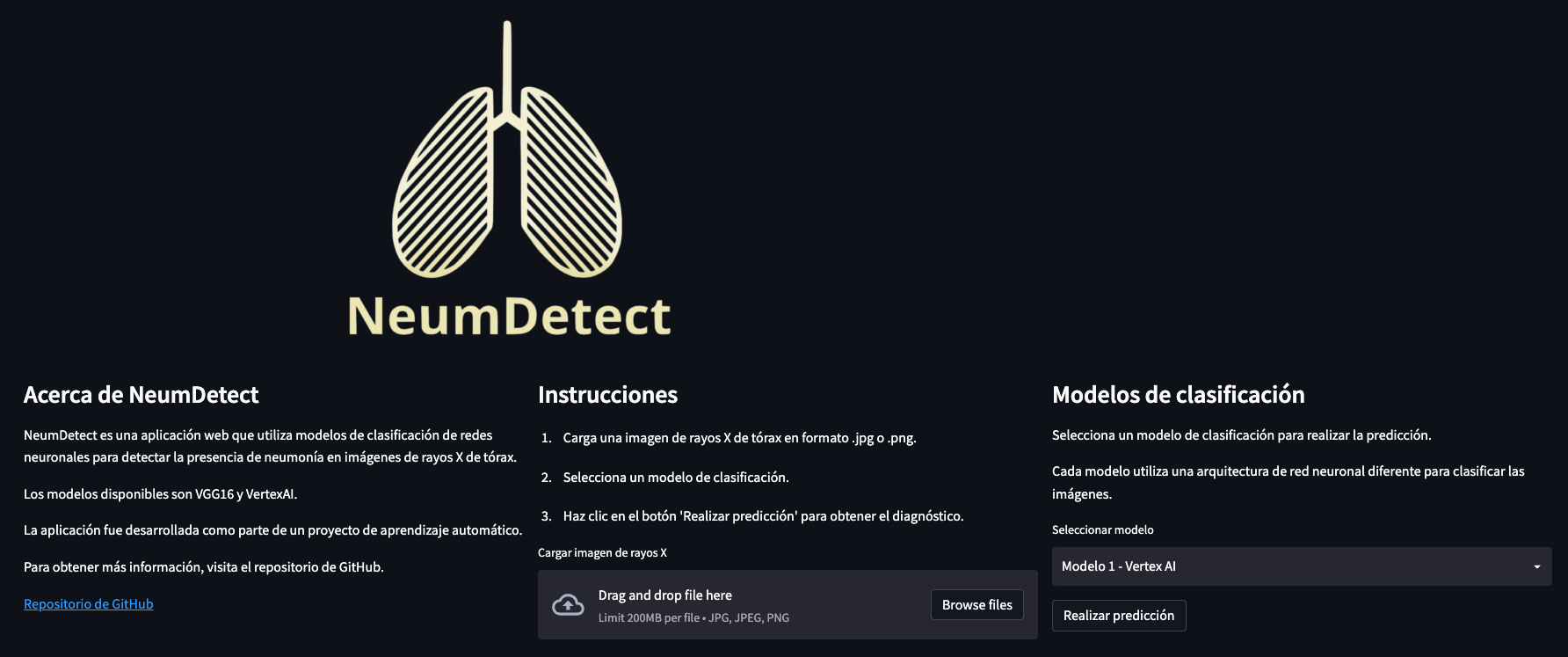
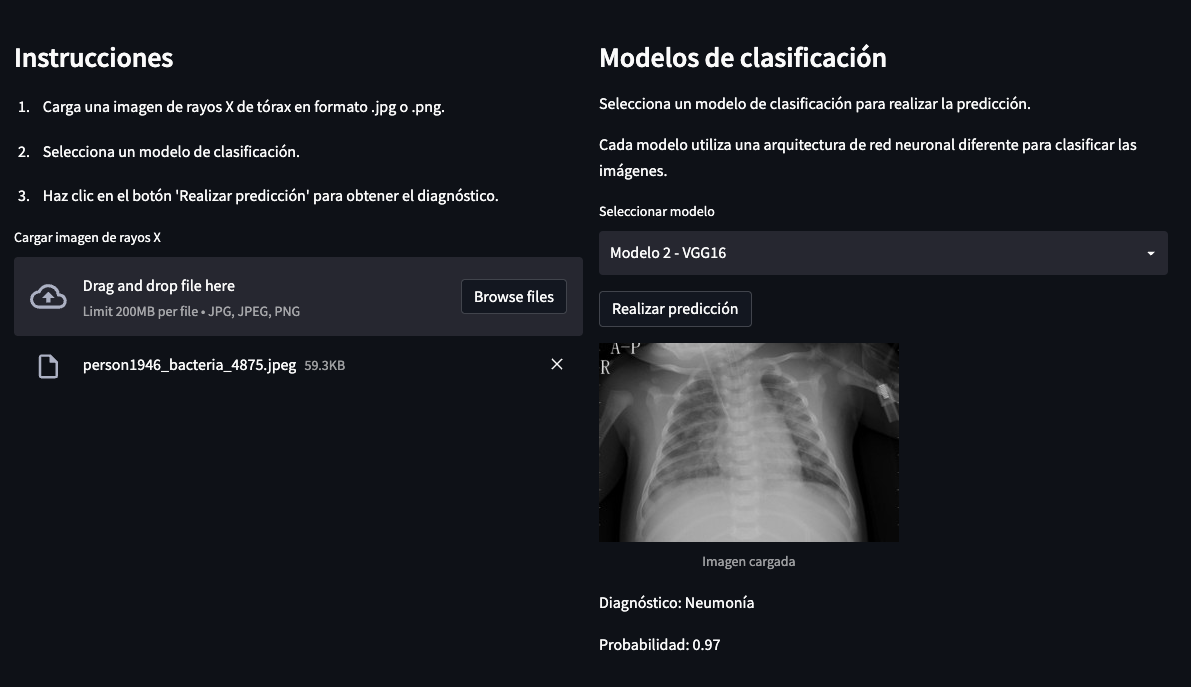
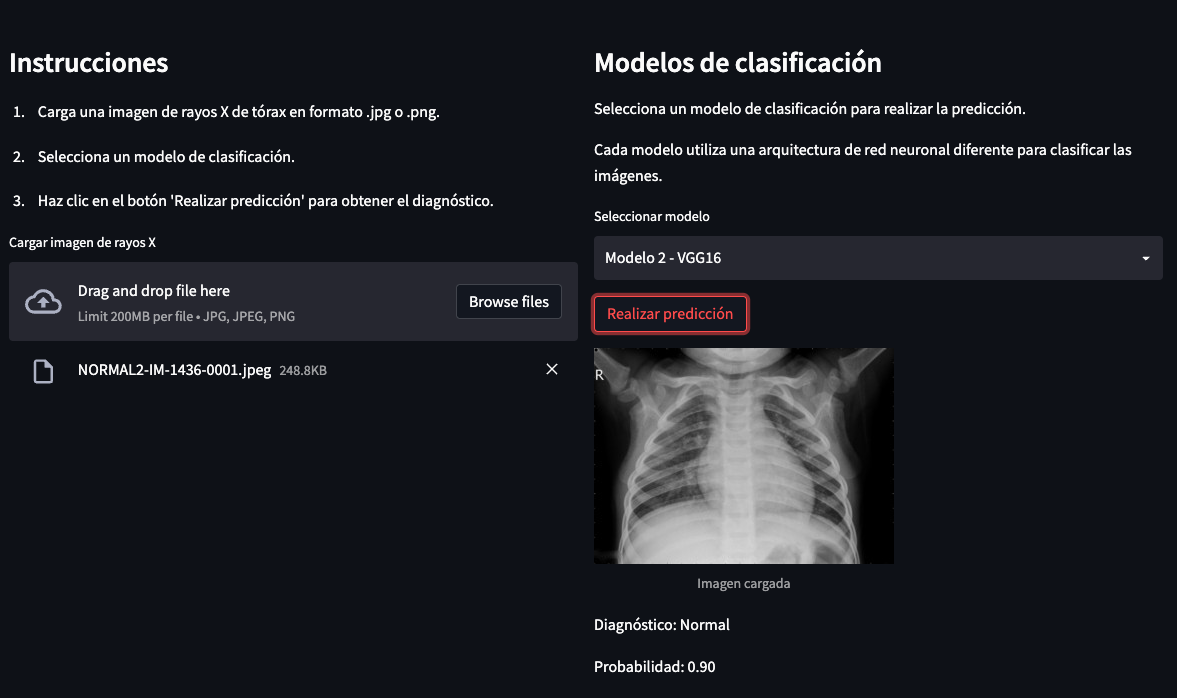
🎯 Training Dataset Examples
Normal Chest X-rays
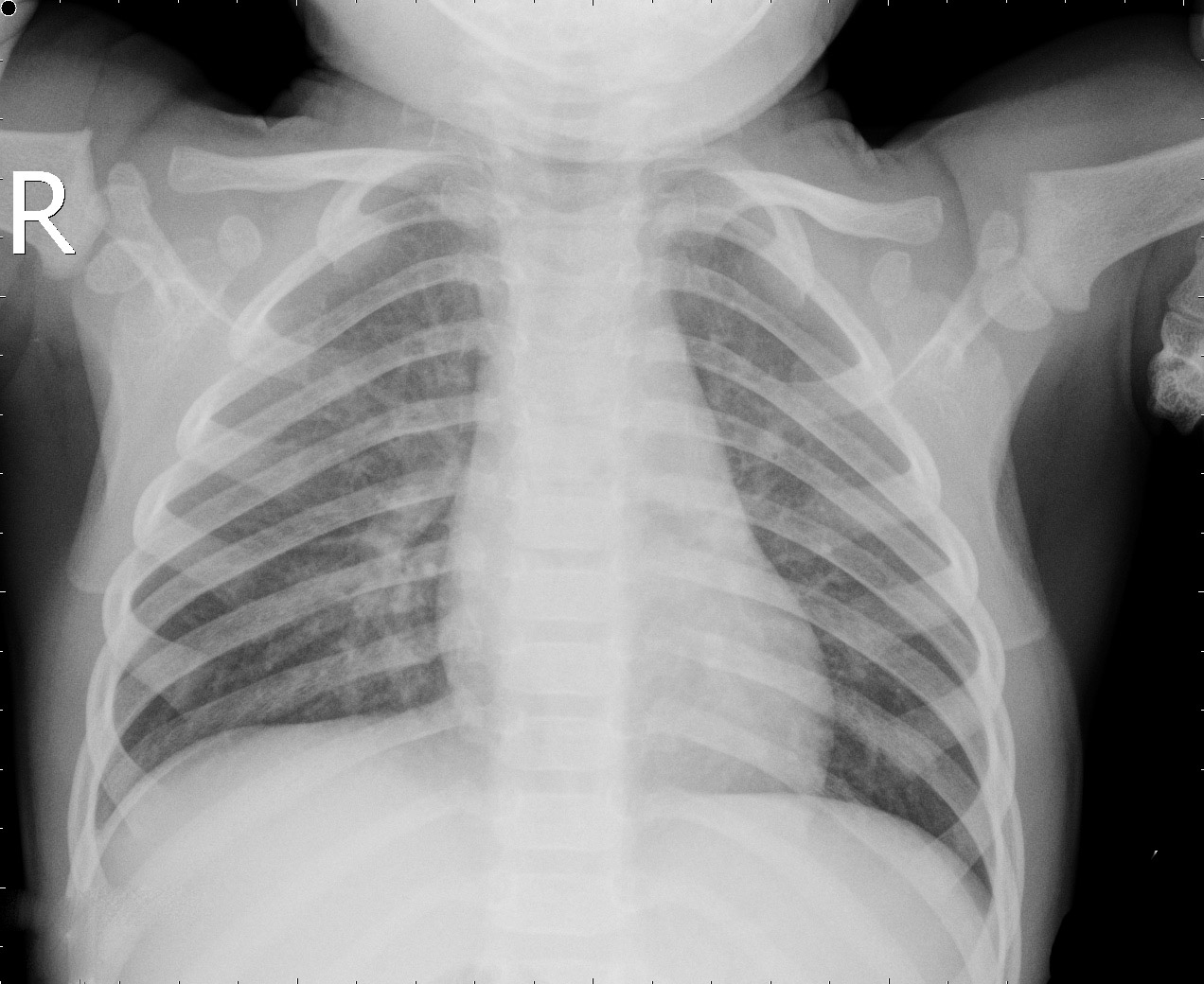
Clear lung fields without infiltrates
Pneumonia X-rays
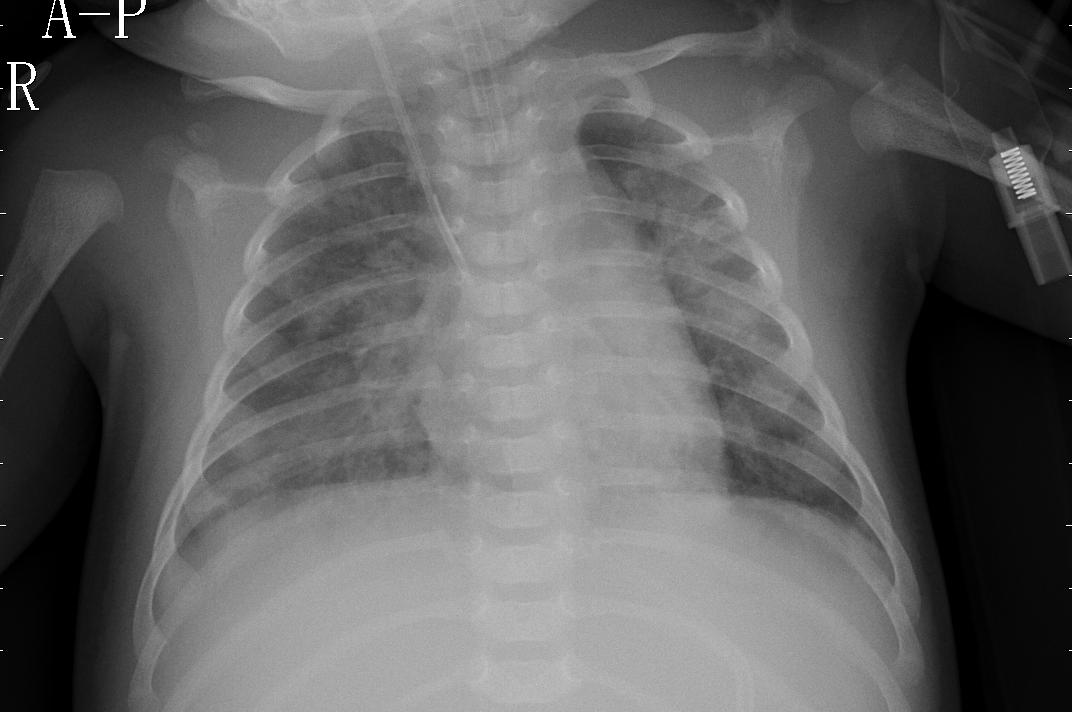
Visible infiltrates indicating pneumonia
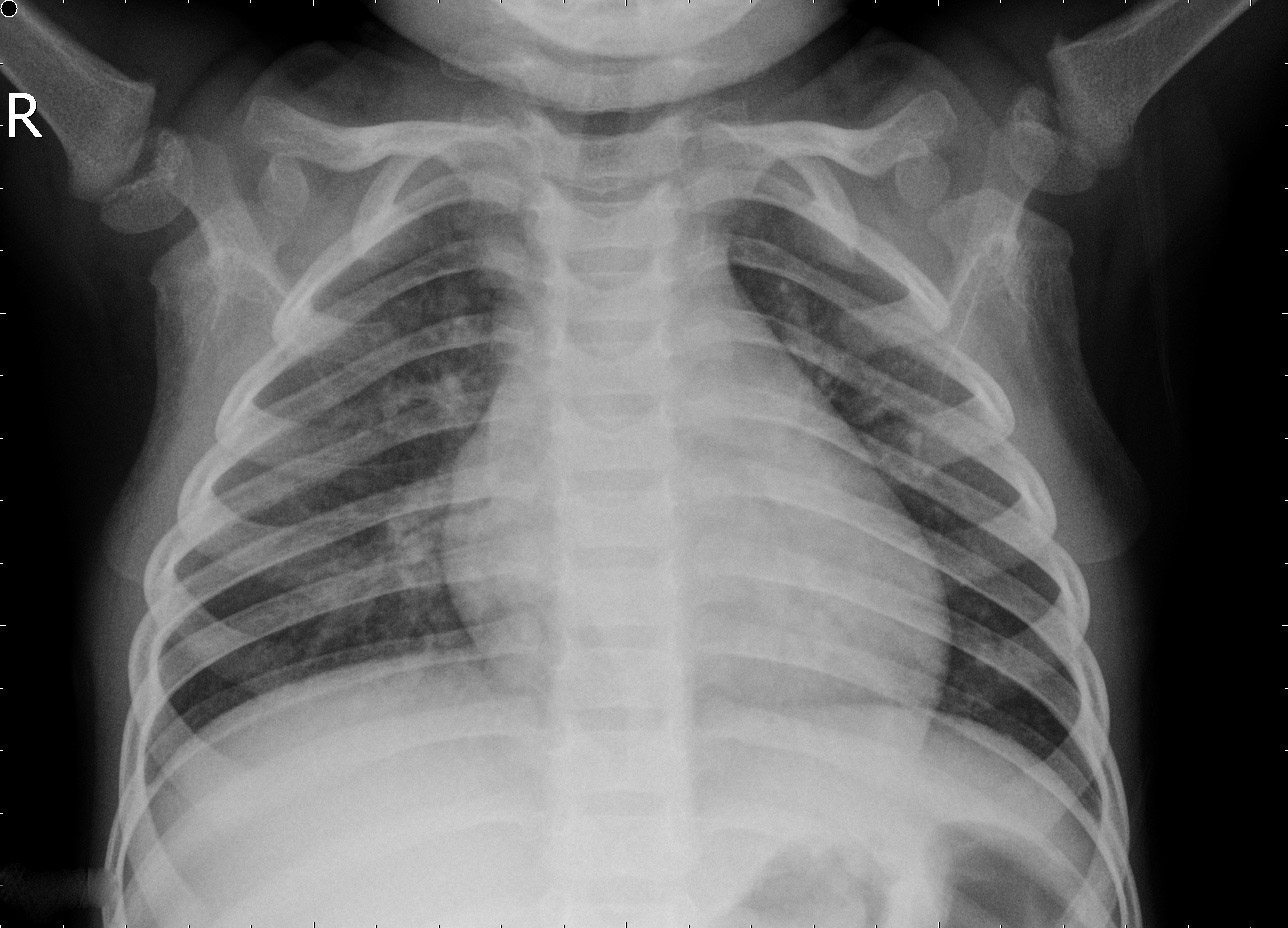
Healthy chest structure
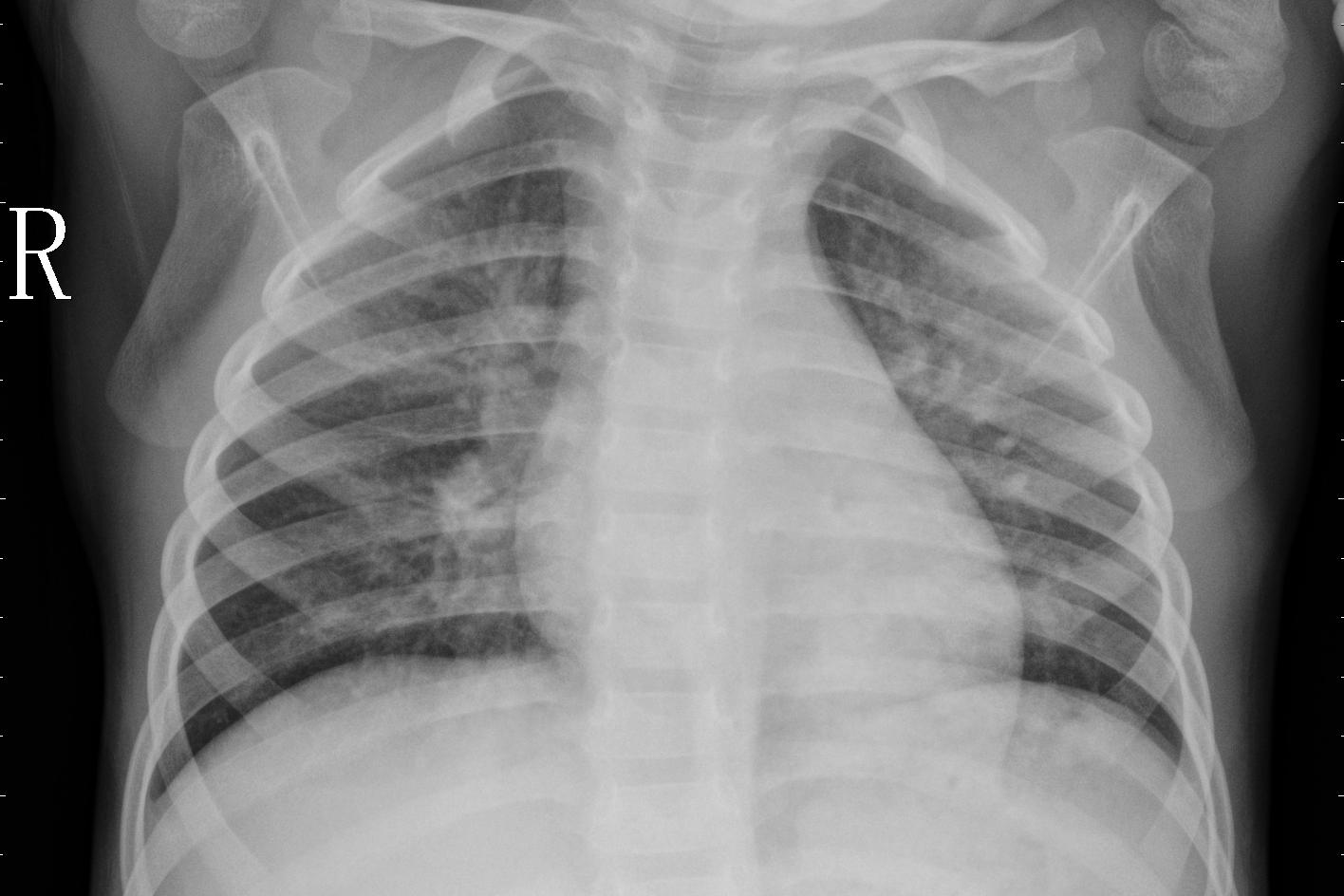
Bilateral pneumonia patterns
🔍 Technical Highlights
- Implementation of transfer learning techniques
- Custom data augmentation pipeline
- Integration of medical imaging best practices
- Robust validation methodology
- Performance optimization for medical environments
- Enhanced model interpretability
📊 Model Performance
- Training accuracy: >94%
- Validation accuracy: >92%
- Test set performance: >90%
- Fast inference time: <2 seconds per image
📚 Key Learnings
- Deep learning application in medical imaging
- Medical data preprocessing techniques
- Model optimization for healthcare applications
- Implementation of AI ethics in healthcare
- Integration of ML systems in medical workflows
🏥 Healthcare Impact
- Early detection of pneumonia cases
- Reduced diagnostic time
- Support for medical professionals
- Improved patient outcomes
- Accessible medical AI technology
🛠️ Development Practices
- Strict medical data handling protocols
- Comprehensive validation processes
- Regular performance benchmarking
- Continuous model improvement
- Documentation of medical applications
